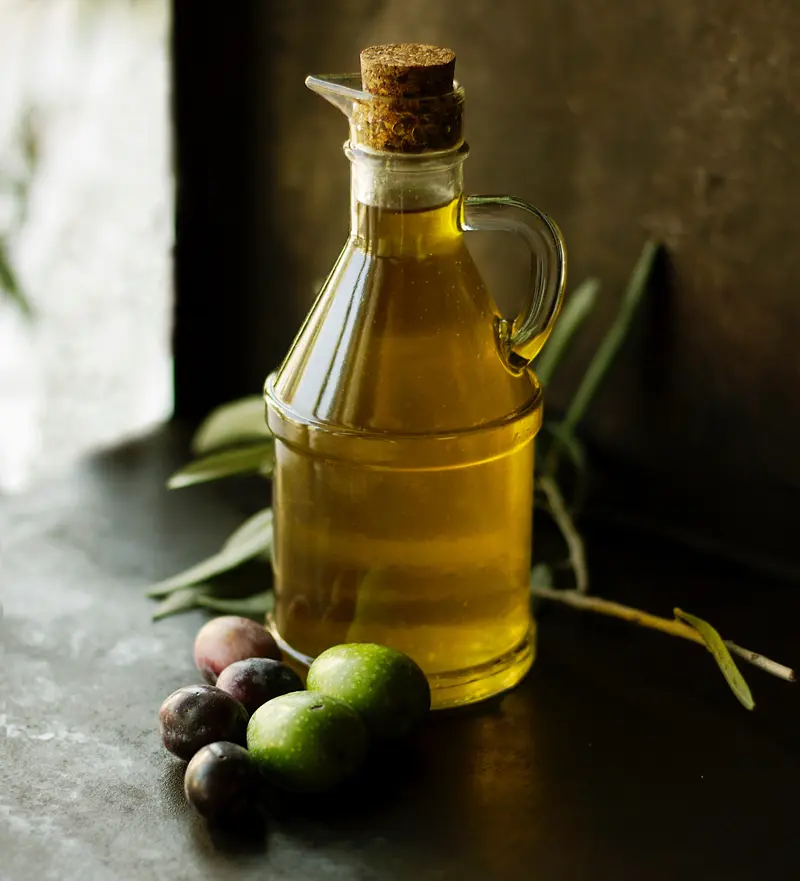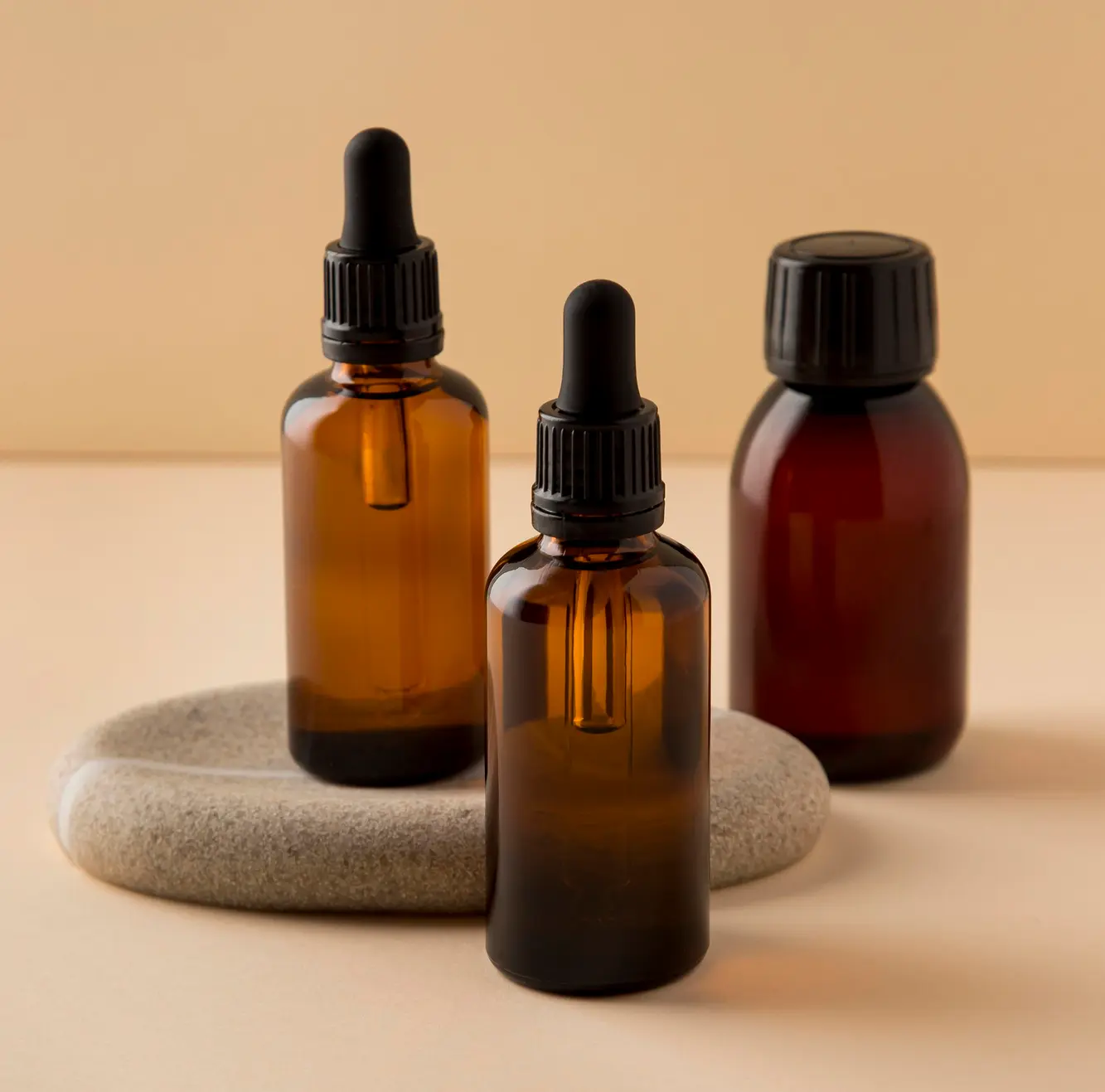If you’ve used essential oils or learned much about them, you probably know that it’s a good idea to dilute your essential oils with a carrier oil.
While there are some essential oils that can be applied “neat” or undiluted, straight from the bottle, most oils, particularly “hot” oils such as cinnamon, oregano, thyme, cassia and clove, should be diluted with a carrier oil before application. Even some oils that are frequently used neat by adults should be diluted for children, people with particularly sensitive skin, or when covering a large area on the body.
Pure, undiluted oils will absorb very quickly into your skin. Using a carrier oil will help you massage the oil into a larger area, and slow absorption into the skin. It will also help to avoid using more than is necessary, potentially wasting your precious oils.
Most pure carrier oils are great for the skin, offering nourishing, moisturizing and regenerating benefits.
Diluting your essential oil, even at a 10 to 1 ratio (ten drops carrier to 1 drop of essential oil) will not reduce the efficacy of an oil – so when in doubt, dilute.
Essential oil dilution is sometimes specified in terms of either a percentage or a number of drops to be added to an amount of carrier oil.
The charts are helpful to beginners with essential oils who are still unsure about essential oil dilution and the appropriate carrier amounts. It gives a starting point. Over time, you develop the knowledge and intuition in knowing the amount of carrier to use for certain applications.
There are a variety of oils to choose from when selecting a carrier oil. I personally like fractionated coconut oil the best, though I do use a variety of carrier oils. Some of the benefits of popular carrier oil are:
Coconut Oil
Whole coconut oil is solid at room temperature and has long unsaturated fatty acid triglycerides. This oil has a high percentage of completely saturated triglycerides (no double bonds). When the smaller fatty acids and long-chain triglycerides are separated from the whole coconut oil, it leaves only saturated fats or a fraction of the whole oil. This is then known as “Fractionated Coconut Oil.”
Advantages of Fractionated Coconut Oil
Fractionated coconut oil is perfect for essential oil dilution. It never goes rancid because of the fact there is no oxidation. Therefore, has an indefinite shelf life and is in a perfectly clear liquid form. Other advantages:
- It is odorless and colorless. It won’t stain and easily washes out of clothing and sheets.
- It absorbs into the skin while reducing essential oil evaporation.
- It is excellent on skin; a natural and very safe moisturizer, softener and safe, non-irritant lubricator.
- It leaves skins smooth with no greasy feeling.
- Low production costs make it cost effective.
- It can be mixed with other, more expensive, carriers to increase shelf life. It can also be used it to create different cream textures.
- It does not aggravate skin problems or clog pores.
- It is fully digestible and considered an excellent and healthy cooking oil.
- It is one of the best multi-purpose carrier oil products on the market.
Advantages of Virgin Coconut Oil (VCO – not fractionated)
Virgin Coconut Oil is excellent for skin care and has a list of additional benefits. Organic VCO can be obtained at the health food store or on line. It’s white, solid (below about 73 degrees) and has a slight coconut flavor. Avoid using a microwave when melting to use with essential oils. Instead, place a glass container with the VCO in a pan with hot water from the tap. This will be sufficient warmth to melt the VCO. Then add the oils and blend a salve which can be saved in a baby food jar or other small jar.
Olive Oil
Olive oil is known as one of the most quality culinary oils. It has a multitude of uses, including a quality carrier oil. Depending on the press, it has a full-bodied flavor and a strong aroma, and can also have a golden brown or green color.
Other advantages of olive oil:
- It has a high vitamin and mineral count.
- It is a quality lubricant.
- It has approximately a one-year shelf life.
- It is an excellent conditioner for hair.

Image by Roberta Sorge at Unsplash
Grapeseed Oil
Grapeseed oil, as the name indicates, is made from the seed of the grape. Its production prior to the 20th century was limited because grape seeds contain such a small quantity of oil. The process of extraction is labor intensive. It is most widely known for its healthful culinary applications. It is beginning to be recognized as a massage oil, lotion base, hygiene cream, and lip balm. It is relatively odorless and is excellent for essential oil dilution. It is mostly clear with a very light yellow/green tinge and has a slightly sweet taste.
Other advantages of grapeseed oil are:
- It offers regenerative and restructuring characteristics that offer quality skin moisturizing.
- It is considered an excellent lubricant for massage and shaving.
- It leaves a glossy film that protects essential oils from evaporation. Saturation takes longer than some other carriers.
- Some claim it has astringent qualities that tighten and tone the skin.
- It does not aggravate acne or clog pores.
Jojoba Oil
Another good choice for essential oil dilution, Jojoba oil is found in the seed of the Jojoba plant. It is native to the southwestern United States and northwestern Mexico. It is considered a natural wax. It is nearly colorless (slight yellow tint) and odorless. It is normally liquid at room temperature; its melting point is just over 40° F.
Other advantages of jojoba oil are:
- It has a very stable shelf life and when mixed with other carriers, increases their shelf life.
- It is known for its nourishing qualities for the skin.
- It closely resembles the natural oils of our own skin
- It absorbs well into the skin, with no greasy feeling.
- It is naturally protective to sensitive skin.
Safflower Oil
Safflower oil is extracted from the seeds of the safflower plant, which is commonly used as a vegetable oil and is relatively inexpensive. It can be used for essential oil dilution, but it has a high content of unsaturated fatty acids and can go rancid quickly. Its best shelf life (about 1 year) is guaranteed if it is mixed with another quality carrier oil such as fractionated coconut oil. It is a pale yellow, nearly colorless, and has very little odor.
Other advantages of safflower oil:
- It has excellent moisturizing qualities.
- It is a good lubricant.
- It is easily absorbed.
- Quality safflower does not stain.
As an Amazon Associate I may earn a small commission from from qualifying purchases at no additional cost to you.









